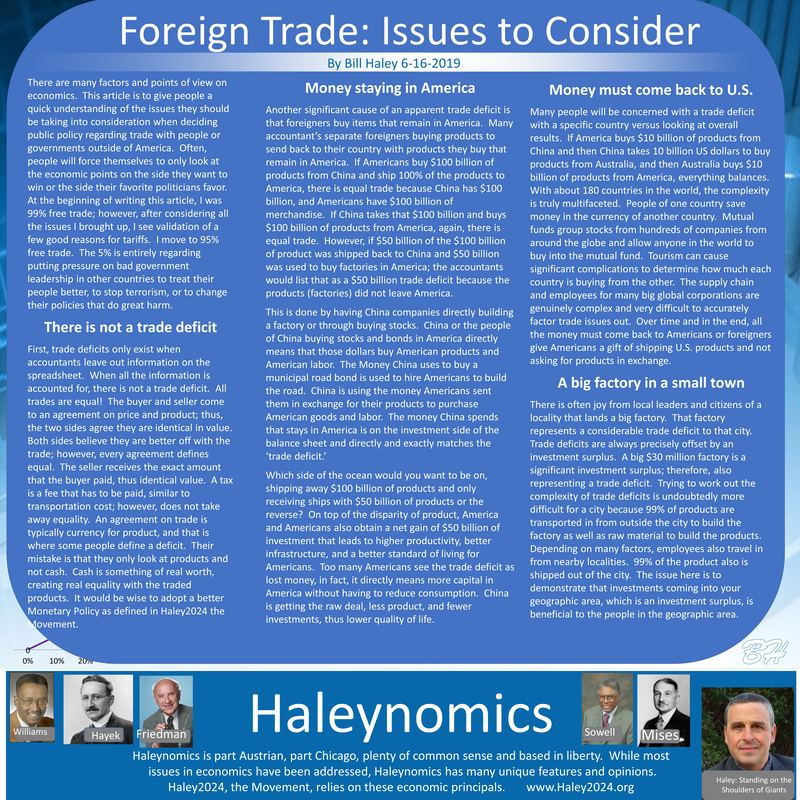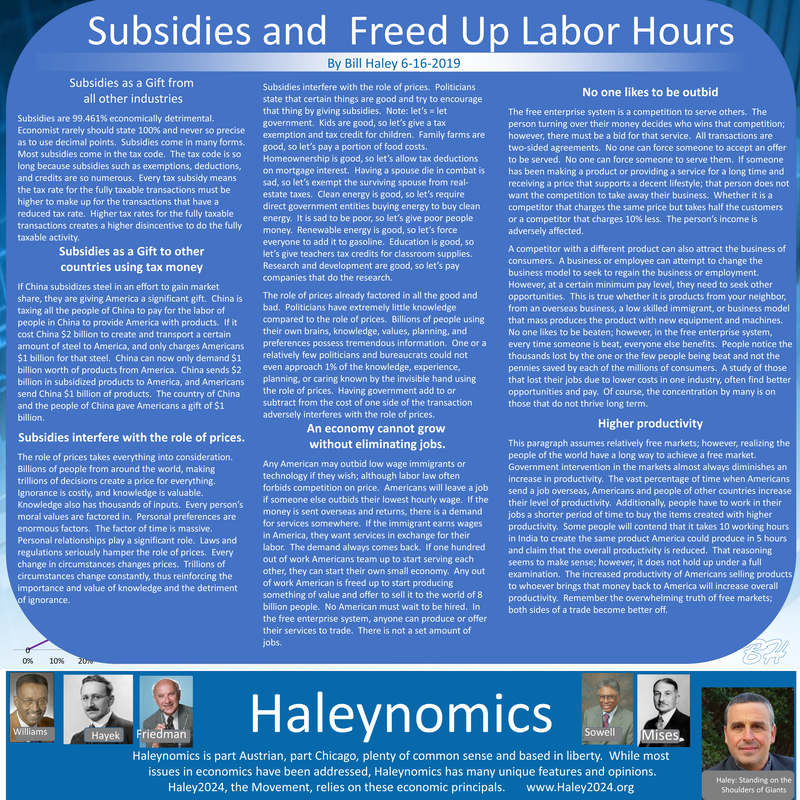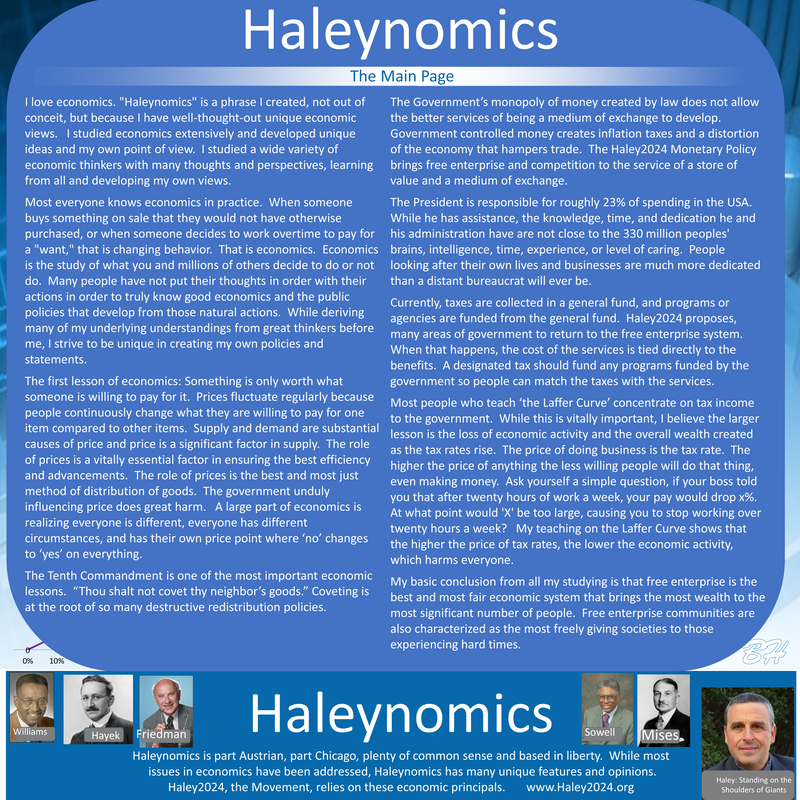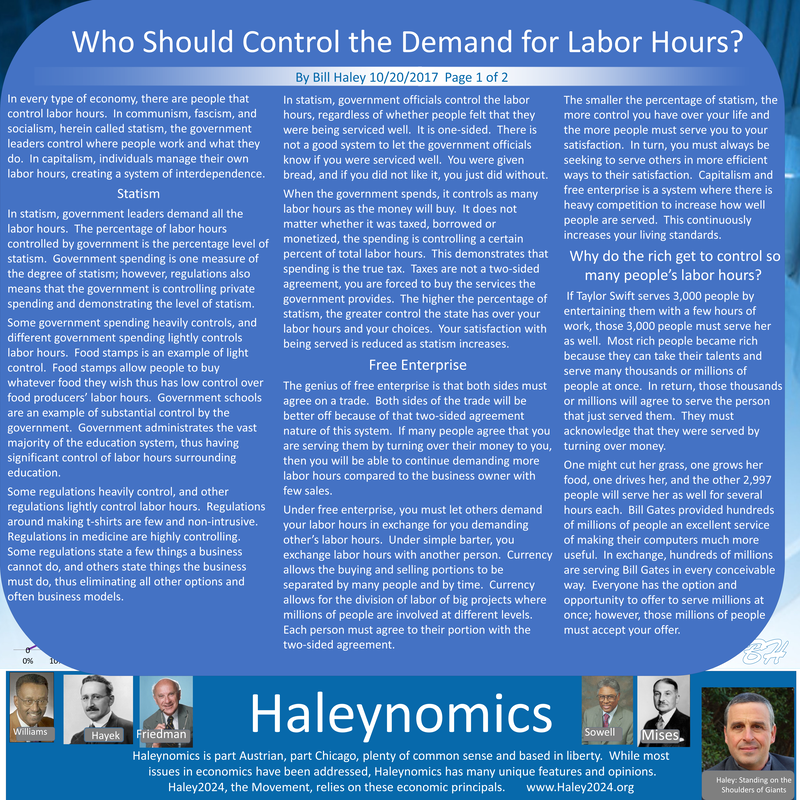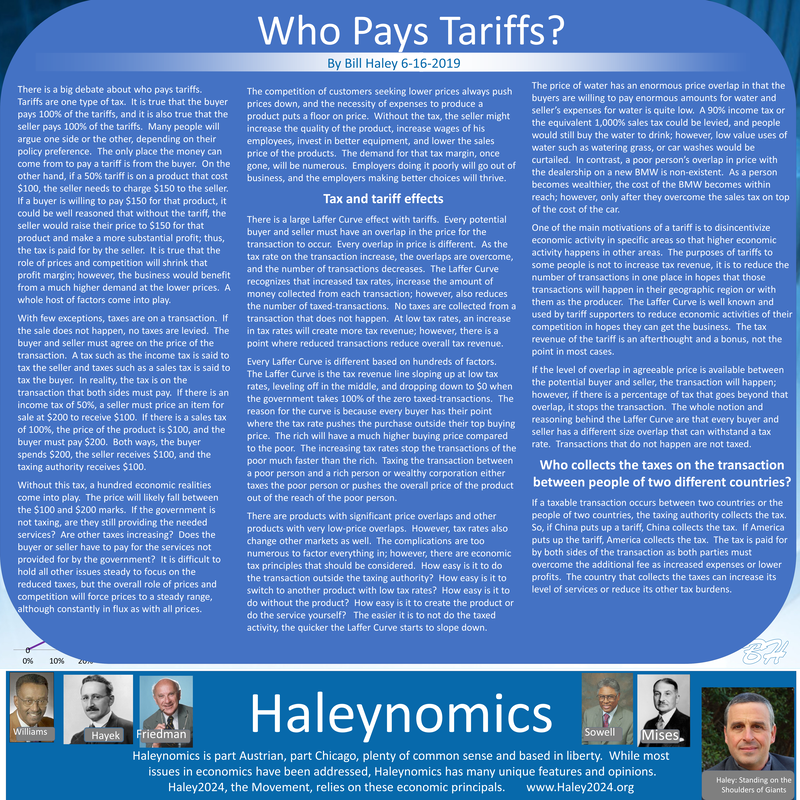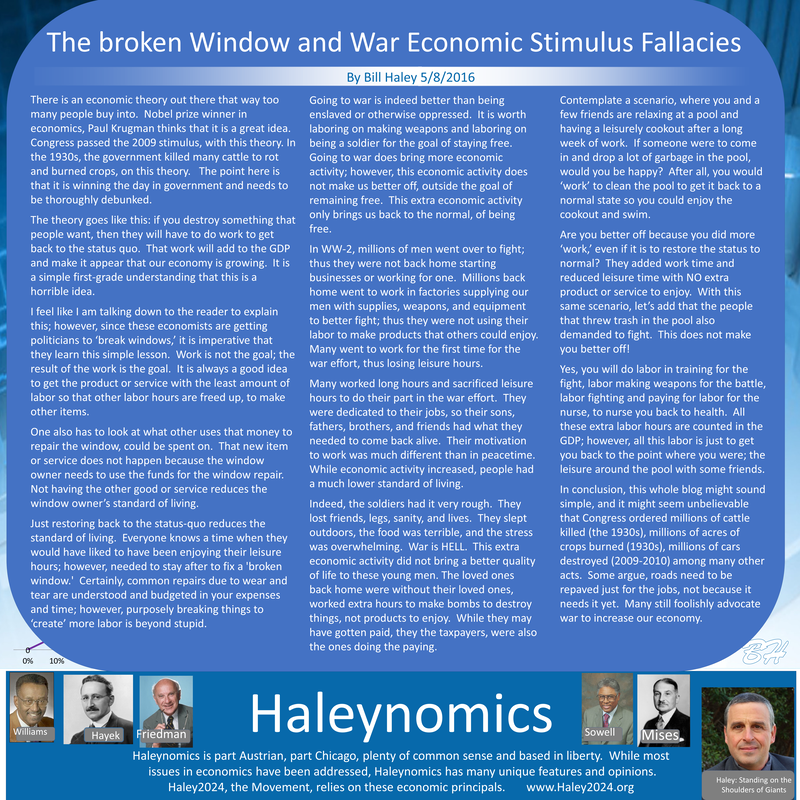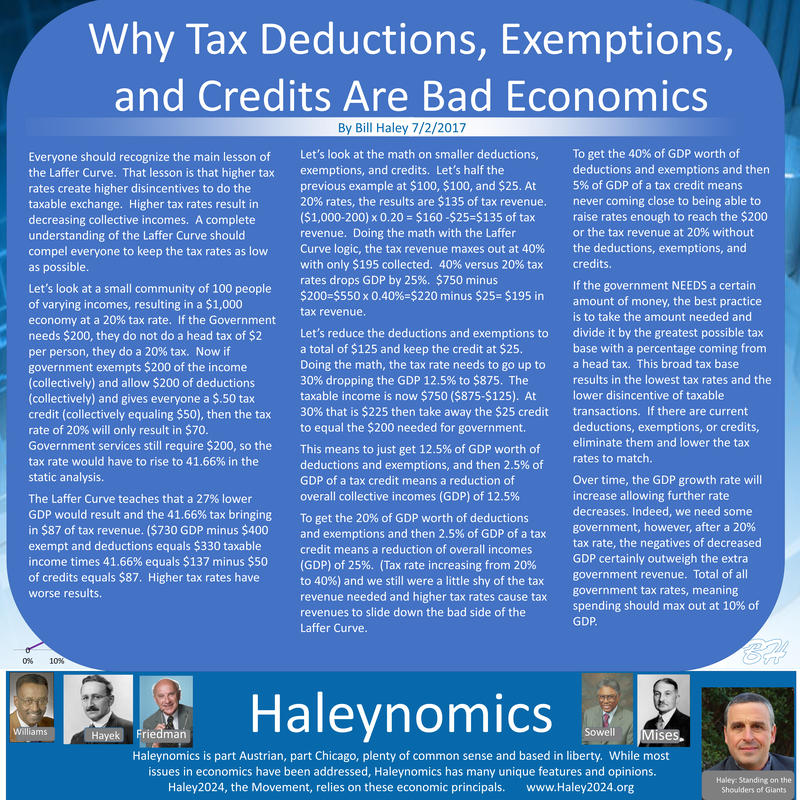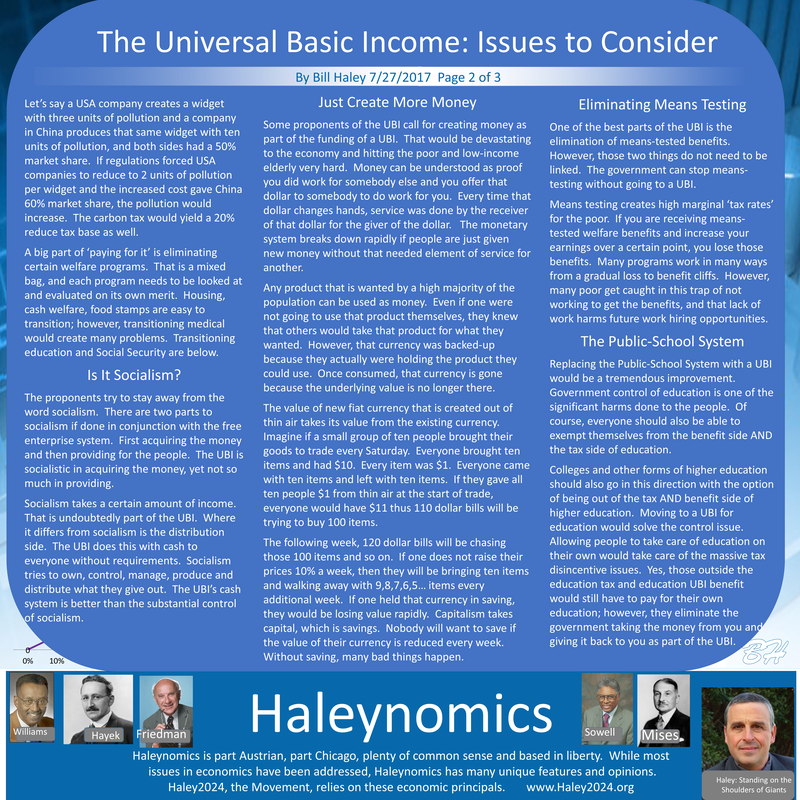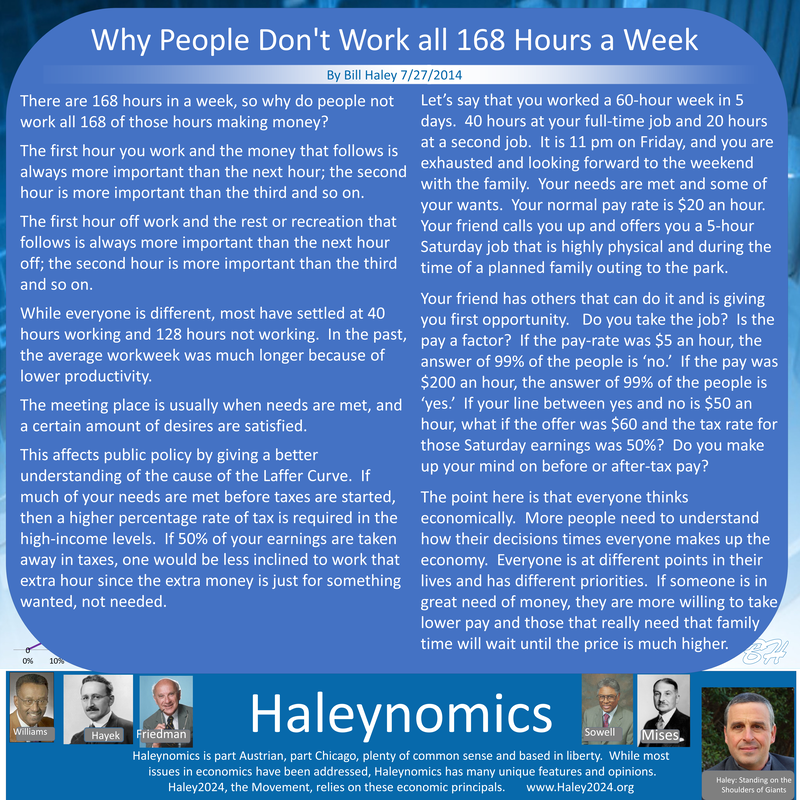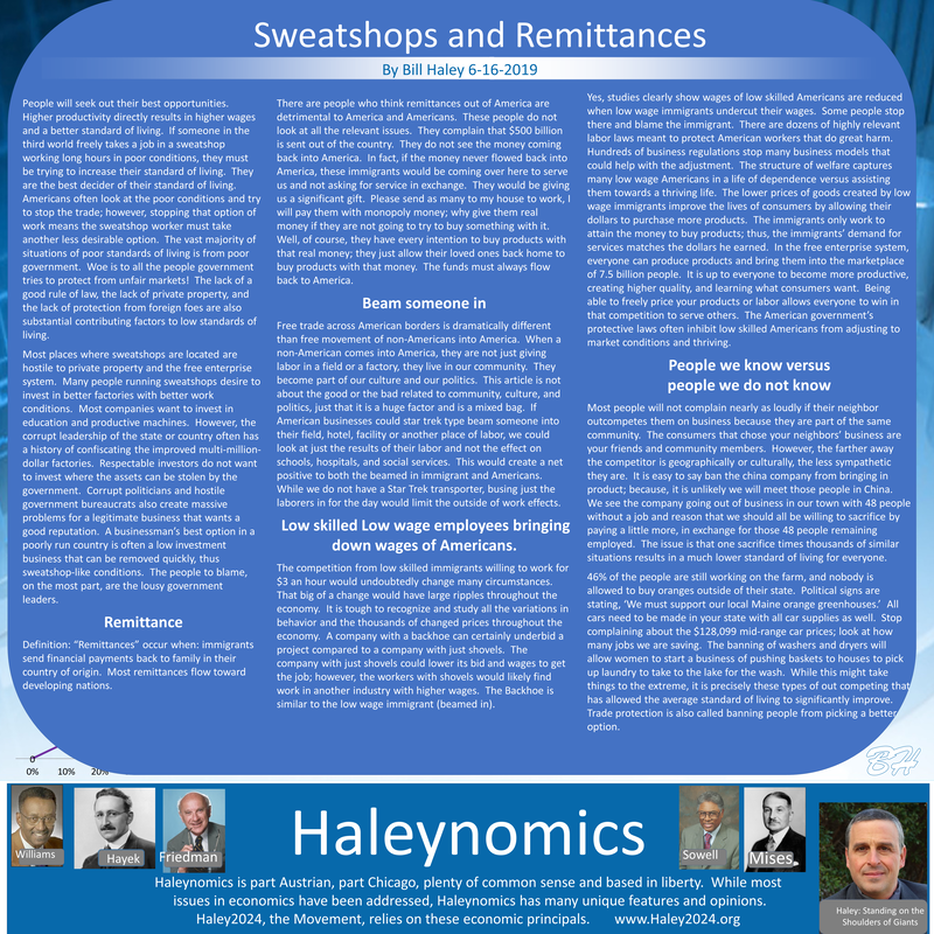| People will seek out their best opportunities. Higher productivity directly results in higher wages and a better standard of living. If someone in the third world freely takes a job in a sweatshop working long hours in poor conditions, they must be trying to increase their standard of living. They are the best decider of their standard of living. Americans often look at the poor conditions and try to stop the trade; however, stopping that option of work means the sweatshop worker must take another less desirable option. The vast majority of situations of poor standards of living is from poor government. Woe is to all the people government tries to protect from unfair markets! The lack of a good rule of law, the lack of private property, and the lack of protection from foreign foes are also substantial contributing factors to low standards of living. |
| Most places where sweatshops are located are hostile to private property and the free enterprise system. Many people running sweatshops desire to invest in better factories with better work conditions. Most companies want to invest in education and productive machines. However, the corrupt leadership of the state or country often has a history of confiscating the improved multi-million-dollar factories. Respectable investors do not want to invest where the assets can be stolen by the government. Corrupt politicians and hostile government bureaucrats also create massive problems for a legitimate business that wants a good reputation. A businessman’s best option in a poorly run country is often a low investment business that can be removed quickly, thus sweatshop-like conditions. The people to blame, on the most part, are the lousy government leaders. |
Remittance
| Definition: “Remittances” occur when: immigrants send financial payments back to family in their country of origin. Most remittances flow toward developing nations. There are people who think remittances out of America are detrimental to America and Americans. These people do not look at all the relevant issues. They complain that $500 billion is sent out of the country. They do not see the money coming back into America. In fact, if the money never flowed back into America, these immigrants would be coming over here to serve us and not asking for service in exchange. They would be giving us a significant gift. Please send as many to my house to work, I will pay them with monopoly money; why give them real money if they are not going to try to buy something with it. Well, of course, they have every intention to buy products with that real money; they just allow their loved ones back home to buy products with that money. The funds must always flow back to America. |
Beam someone in
| Free trade across American borders is dramatically different than free movement of non-Americans into America. When a non-American comes into America, they are not just giving labor in a field or a factory, they live in our community. They become part of our culture and our politics. This article is not about the good or the bad related to community, culture, and politics, just that it is a huge factor and is a mixed bag. If American businesses could star trek type beam someone into their field, hotel, facility or another place of labor, we could look at just the results of their labor and not the effect on schools, hospitals, and social services. This would create a net positive to both the beamed in immigrant and Americans. While we do not have a Star Trek transporter, busing just the laborers in for the day would limit the outside of work effects. |
Low skilled Low wage employees bringing down wages of Americans.
| The competition from low skilled immigrants willing to work for $3 an hour would undoubtedly change many circumstances. That big of a change would have large ripples throughout the economy. It is tough to recognize and study all the variations in behavior and the thousands of changed prices throughout the economy. A company with a backhoe can certainly underbid a project compared to a company with just shovels. The company with just shovels could lower its bid and wages to get the job; however, the workers with shovels would likely find work in another industry with higher wages. The Backhoe is similar to the low wage immigrant (beamed in). |
| Yes, studies clearly show wages of low skilled Americans are reduced when low wage immigrants undercut their wages. Some people stop there and blame the immigrant. There are dozens of highly relevant labor laws meant to protect American workers that do great harm. Hundreds of business regulations stop many business models that could help with the adjustment. The structure of welfare captures many low wage Americans in a life of dependence versus assisting them towards a thriving life. The lower prices of goods created by low wage immigrants improve the lives of consumers by allowing their dollars to purchase more products. |
| The immigrants only work to attain the money to buy products; thus, the immigrants’ demand for services matches the dollars he earned. In the free enterprise system, everyone can produce products and bring them into the marketplace of 7.5 billion people. It is up to everyone to become more productive, creating higher quality, and learning what consumers want. Being able to freely price your products or labor allows everyone to win in that competition to serve others. The American government’s protective laws often inhibit low skilled Americans from adjusting to market conditions and thriving. |
People we know versus people we do not know
| Most people will not complain nearly as loudly if their neighbor outcompetes them on business because they are part of the same community. The consumers that chose your neighbors’ business are your friends and community members. However, the farther away the competitor is geographically or culturally, the less sympathetic they are. It is easy to say ban the china company from bringing in product; because, it is unlikely we will meet those people in China. We see the company going out of business in our town with 48 people without a job and reason that we should all be willing to sacrifice by paying a little more, in exchange for those 48 people remaining employed. The issue is that one sacrifice times thousands of similar situations results in a much lower standard of living for everyone. |
| 46% of the people are still working on the farm, and nobody is allowed to buy oranges outside of their state. Political signs are stating, ‘We must support our local Maine orange greenhouses.’ All cars need to be made in your state with all car supplies as well. Stop complaining about the $128,099 mid-range car prices; look at how many jobs we are saving. The banning of washers and dryers will allow women to start a business of pushing baskets to houses to pick up laundry to take to the lake for the wash. While this might take things to the extreme, it is precisely these types of out competing that has allowed the average standard of living to significantly improve. Trade protection is also called banning people from picking a better option. |
